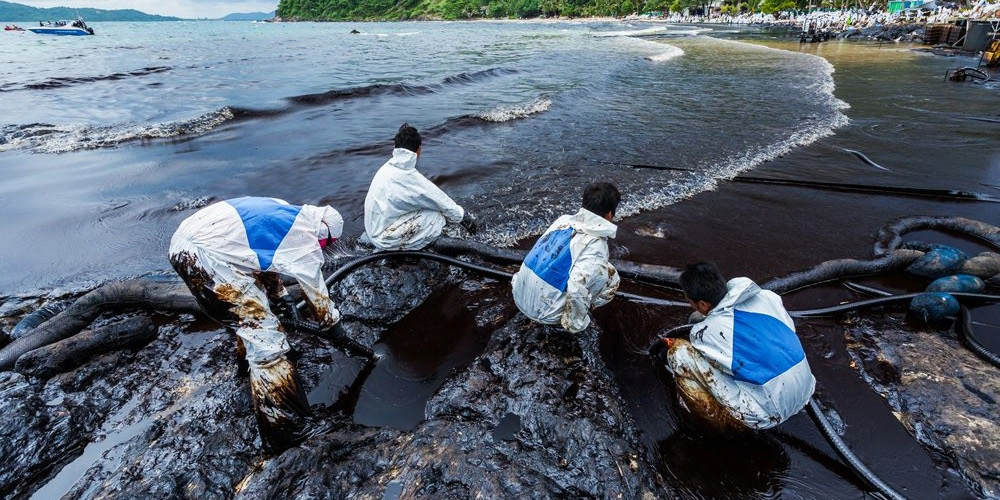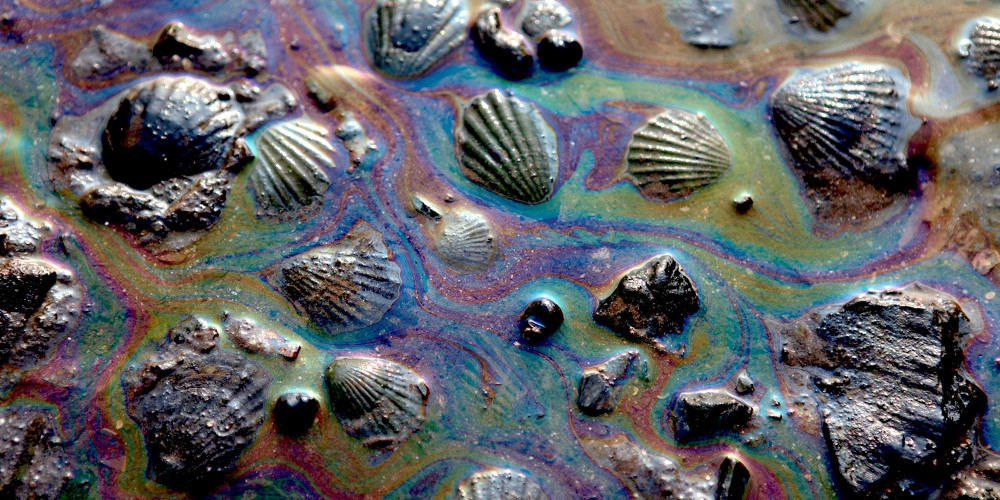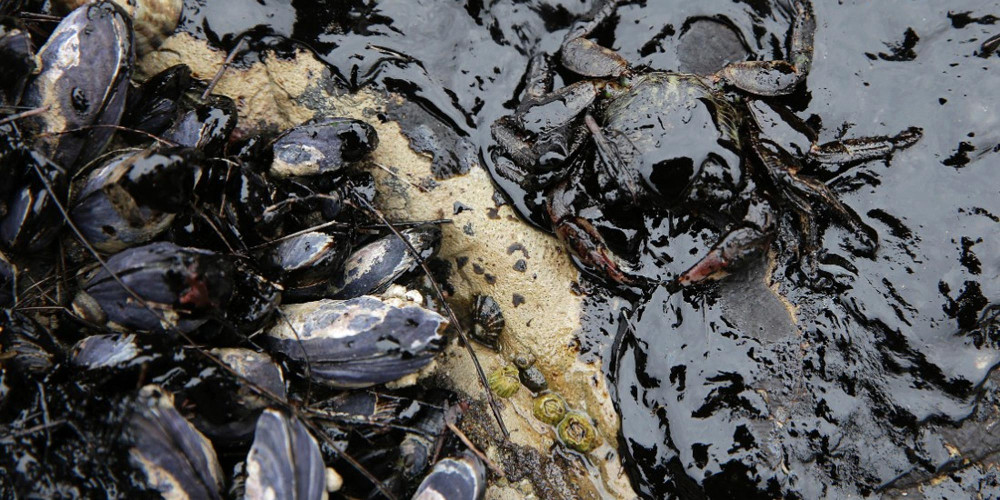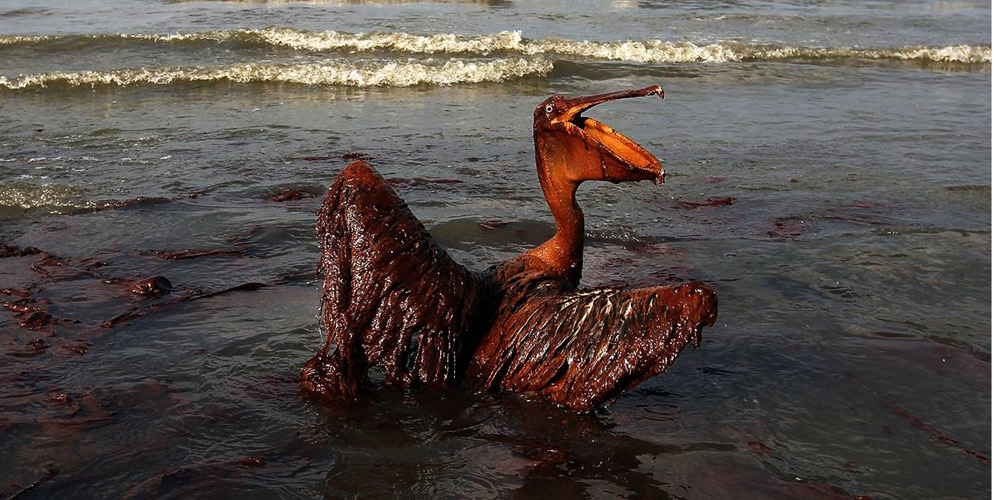Oil
Oil is one of those things that would be better if it didn't exist. It affects the environment when it is extracted, it pollutes the environment when it is used, and it pollutes the environment when accidentally spilled. Oil is poisonous, affecting organisms both from internal exposure through ingestion or inhalation and from external exposure through skin and eye irritation.
Different types of oil behave differently in the environment when spilled. Fuel oils, such as gasoline and diesel fuel, are considered "light" oils. Light oils evaporate relatively quickly, so they usually don't remain for long in the aquatic or marine environment. However, while they are present, light oils present two significant hazards. First, some can ignite or explode. Second, many light oils, such as gasoline and diesel, are toxic. They can kill animals or plants that they touch, and they also are dangerous to humans who breathe their fumes or get them on their skin.
In contrast, very "heavy" oils look black and may be sticky for a time until they weather sufficiently. When spilled, heavy oils will persist in the environment for months or even years if not removed. Heavy oils are considered less toxic than light oils, but since they are thicker they will smother organisms.
Oil is the lifeblood of the modern world. In 2009, oil wells around the world pumped an estimated 84-85 million barrels out of the Earth. Predictions state that at this rate global production will rise, peak, and then fall off. U.S. production has already peaked in 1971 and has been in decline ever since. As global oil production appears to have plateaued in 2005, some analysts say the world has already peaked.
What happens after oil production declines? The worst-case oil crash predictions involve soaring gas prices, the end of globalization, widespread anarchy, and the relentless exploitation of previously protected drilling sites.



